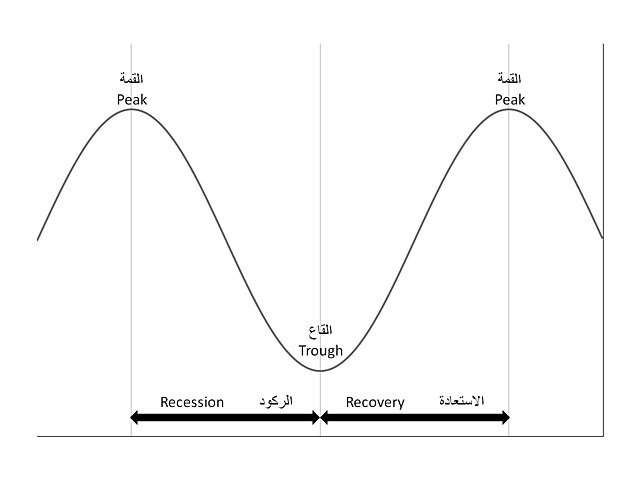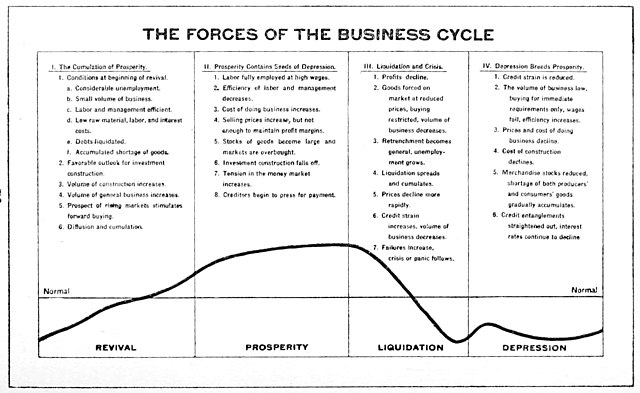Business cycles are intervals of general expansion followed by recession in economic performance. The changes in economic activity that characterize business cycles have important implications for the welfare of the general population, government institutions, and private sector firms. There are numerous specific definitions of what constitutes a business cycle. The simplest and most naïve characterization comes from regarding recessions as 2 consecutive quarters of negative GDP growth. More satisfactory classifications are provided by, first including more economic indicators and second by looking for more informative data patterns than the ad hoc 2 quarter definition.
Phases of the business cycle
Business cycle with it specific forces in four stages according to Malcolm C. Rorty, 1922
Economic activity in the United States, 1954–2005
Deviations from the long-term United States growth trend, 1954–2005
A financial crisis is any of a broad variety of situations in which some financial assets suddenly lose a large part of their nominal value. In the 19th and early 20th centuries, many financial crises were associated with banking panics, and many recessions coincided with these panics. Other situations that are often called financial crises include stock market crashes and the bursting of other financial bubbles, currency crises, and sovereign defaults. Financial crises directly result in a loss of paper wealth but do not necessarily result in significant changes in the real economy.
Black Friday, 9 May 1873, Vienna Stock Exchange. The Panic of 1873 and Long Depression followed.
Declining consumer spending
The Roman denarius was debased over time.
Philip II of Spain defaulted four times on Spain's debt.








